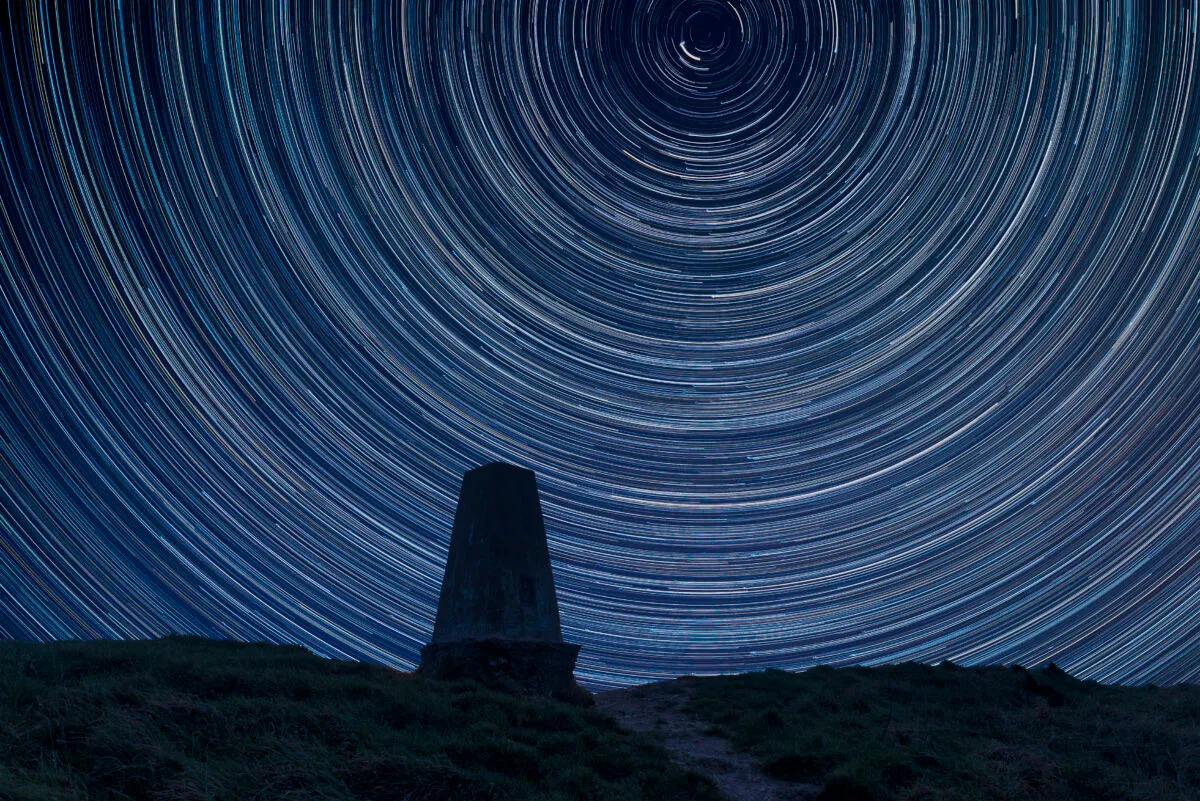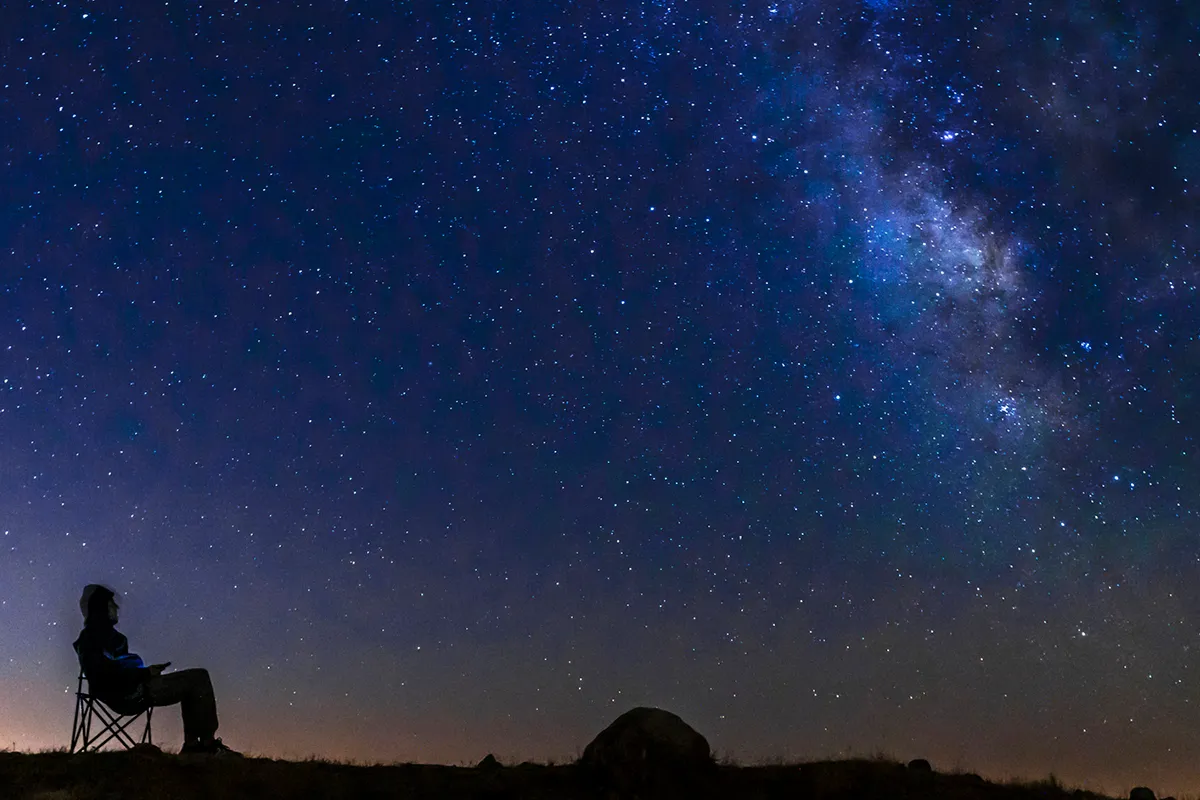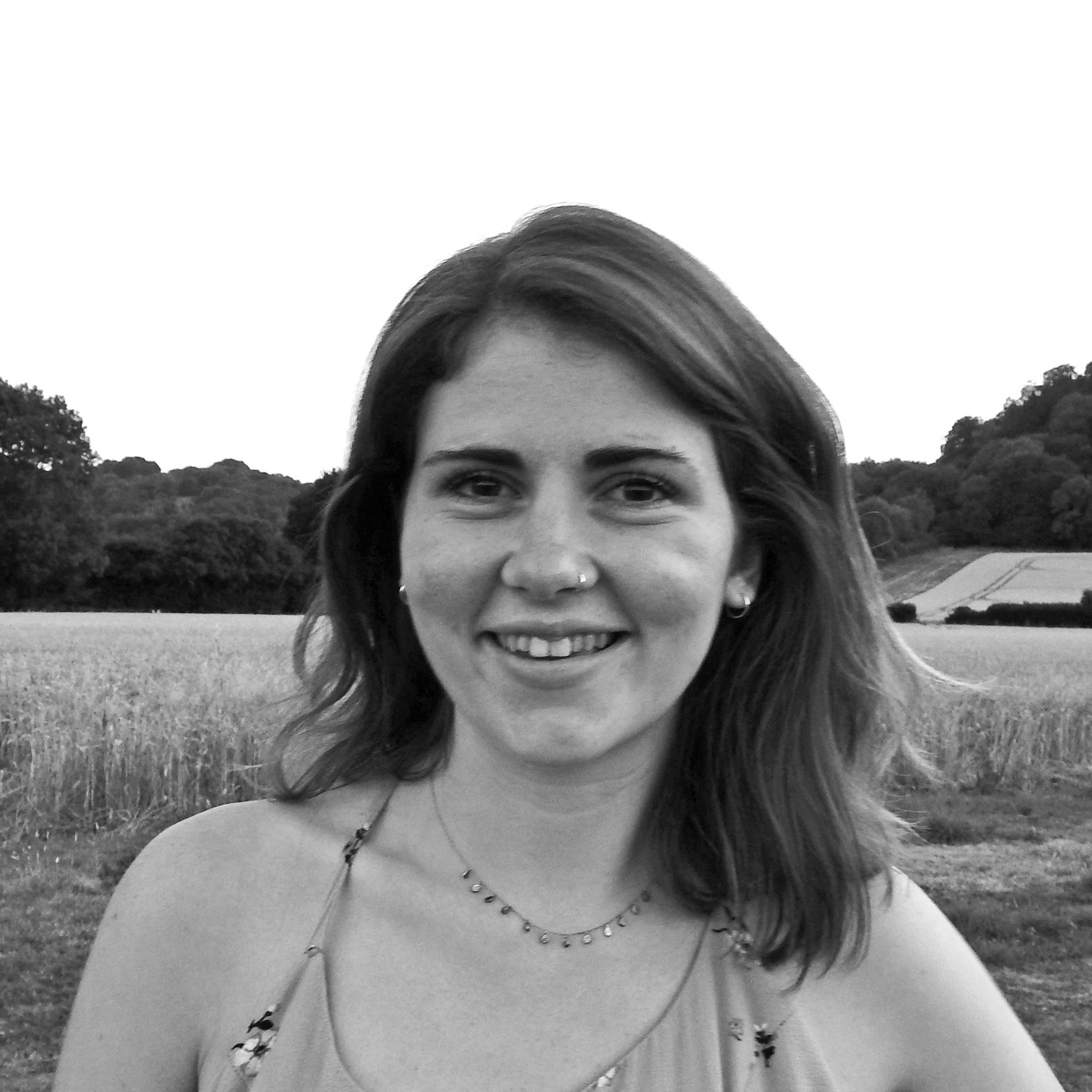The first time I discovered nightwalking was when my boyfriend was away on tour with his band.
Not usually a poor sleeper, I would struggle to drift off without the comfort of knowing he was home, so to clear my head and encourage peaceful thoughts I would make a flask of mint tea, hop in the car and drive to Butser Hill, a favourite spot near my home in the South Downs National Park (one of the best places in the UK for stargazing)
Leaving the car parked, I would hike through elder trees and hazel copse, stumble over rabbit warrens and jump over cowpats until I was alone on the summit beneath a veil of stars cascading over Hampshire and Sussex.
Enjoy nightwalking? Read our guides on how to stargaze, how to star-hop and star clusters to see with the naked eye.

On the far side of the hill, an Iron Age burial mound lay strewn with mosses and wildflowers, polo-shaped and facing away from the sea.
I would climb into the mound and lie down with my back propped against the soil, dirt and dock leaves pressed against the palms of my hands, no doubt disrespecting some ancient soul buried beneath me.
Sipping hot tea in my hidden corner of the world, I’d spend an hour watching each constellation tell its tale on the midnight stage, foxes barking in the trees behind me and fresh night air filling my lungs.
Stephen Hawking once invited us to "Look up at the stars and not down at our feet", and in our anthropocentric, pressurised world, gazing out into the Universe can help our daily problems and worries feel insignificant.

At the same time, it can empower us to remember that a precise cluster of atoms came together to form our exact minds and bodies, reminding us how lucky we are to be alive on Earth.
I spent a year travelling around the UK and Europe in order to understand our relationship with the night sky.
As the months passed and seasons changed, I learnt to observe the shifting hours of sunsets and sunrises, becoming more in tune with my circadian rhythm and appreciating the joy of first light and the velvet beauty of nightfall.
In winter, although the days were short and cold, the nights drew in early and allowed me to catch a glimpse of the stars before bed.
In summer the evening air was balmy and sweet, full of churring nightjars, hunting owls and sparkling glow worms in the countryside’s long grass.
The modern world means our sleeping patterns have adapted to suit office hours and school runs, but that doesn’t mean we can’t try to synchronise more closely with our natural rhythms.
To venture out into the wilderness after nightfall is a natural behaviour we can all benefit from and, in doing so, landscapes that were once familiar to us transform into unearthly spaces.
In savouring the unknown we are offered new territories to explore and new ways to connect with nature.
Just as Lord Byron wrote in his poem Manfred, at night we can "learn the language of another world".
This article first appeared in the October 2019 issue of BBC Sky at Night Magazine.
